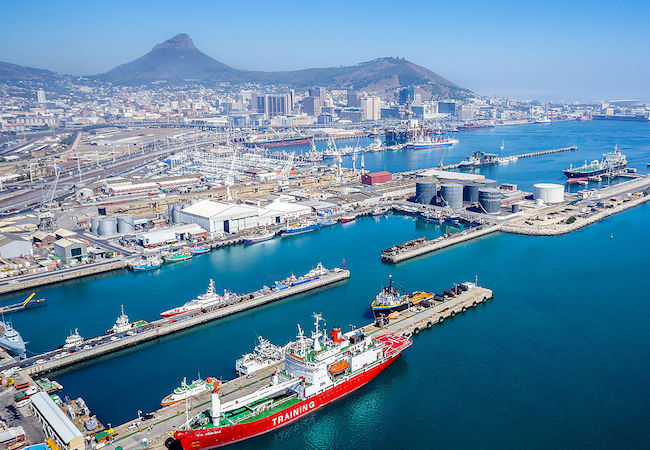
By Kirtan Bhana, Srimal Fernando and Megha Gupta
On the African continent, the leadership of South Africa has been overwhelmingly crucial. The development of South Africa’s economic, social and political indicators in the past twenty years has not just affected South Africa but has also had a profound reflection in the African continent. The African countries have been able to use this window of opportunity in their favour due to South Africa’s leading role in the continent. South Africa has had a strong interest in maintaining a more stable balance of power within the continent. The underlying fact of transformation was due to the solid political and economic achievements that the nation underwent. South Africa has maintained good relations with the Indian Ocean Rim Association (IORA), South African Development Cooperation (SADC), and Brazil Russia India China and South Africa (BRICS) member states on a number of key issues.
The former South African Minister of International Relations and Cooperation Maite Nkoana-Mashabane during her address at the 17thIORA Meeting of the Council of Ministers in Durban, stated, “A country’s foreign policy is firmly premised on its domestic priorities, hence, as South Africa, we expect great dividends from linking Indian Ocean Rim Association (IORA) Blue Economy to our domestic Operation Phakisa: Oceans Economy initiative.” During this council meeting South Africa had assumed the Chair of IORA.
This meeting was held under the theme of establishing peace, stability and sustainable development between the people of Africa, Asia, Australasia and Middle East. This is also encompassed in South Africa’s view that the Indian Ocean Region should be characterised as a region of peace, stability and development to pursue the goal of promoting socio-economic cooperation and well-being of the people of the countries within the Indian Ocean Rim. This had also successfully led to the advancement of South Africa’s priorities for its time as the IORA Chair from 2017 to 2019, including the African Union’s 2050 African Integrated Maritime Strategy (AIMS) and Agenda 2063. South Africa has also provided sufficient funds for the IORA development projects to ensure the economic upliftment of the people living in the member states.
As chair of another important organisation SADC, South Africa’s destiny is inextricably linked to the African continent.South Africa oversees the functioning and development of this 16-member bloc SADC and ensures that the policies and decisions are well implemented. There is no doubt that South Africa’s contribution has been immense and this influence was cemented by creating greater economic and political spaces for the other member nations. Lindiwe Sisulu, the South African International Relations and Cooperation Minister had stated that“Industrialisation remains a core pre-requisite for prosperity in the region and has to be achieved through a strong partnership with the private sector.” With the increased industrialisation, interconnectivity and logistical support this regional bloc has diversified economies and expanded the value chains in this zone.
The integration agenda of SADC has also been strengthened through the Regional Indicative Strategic Development Plan which is a comprehensive 15-year strategic roadmap. This plan not only boosts regional economic integration but also leads to the addressing of the socio-economic issues in this region. South Africa, as chair, provides policy direction and suitable programmes to the other member states of SADC with the aim of boosting regional trade, creating jobs and enhancing skills among the member states.
To increase the role of the African continent in the global economy and to enhance unity and solidarity among the African states, the African Union formed an Agreement on the African Continental Free Trade Area (AfCFTA), established in March 2018. President Ramaphosa of South Africa had stated that the trade focussed Kigali Summit had been a “forward step in the arduous journey to translate the African Continental Free Trade Area legal instrument into an effective conduit for increased trade and investment across the African continent”. This has been seen as a positive step ahead for the African continent to mitigate the challenge of the multiplying African population.
In the year 2018, South Africa was assigned the chairmanship of BRICS. In 2017, the establishment of the New Development Bank’s Africa Regional Centre (ARC) in Johannesburg, South Africa, was a major step in bringing the fast growing economies together. The African Regional Centre is said to be the face of the New Development Bank in Africa and by the end of 2018 it is supposed to reach the loan book target of USD 4 billion. The next BRICS meeting will be held in South Africa in July 2018, which will coincide with the centenary celebration of South Africa’s first President, Nelson Mandela. President Mandela was extremely supportive of the development agenda of the South and all the BRICS members have in some form or the other played an important role for the freedom struggle of South Africa.
These sub regional multilateral forums form the bedrock of South Africa’s foreign policy integration into the continent. Through these economic political and social collaborations with Africa and beyond, the status of South Africa has been rising in the global arena. On a more fundamental level the profound changes undergone in the South African foreign policy looks ahead to maintain a more stable balance of power within the Africa continent and beyond, in the next twenty years.
Kirtan Bhana, the managing editor of the Diplomatic Society for South Africa; Srimal Fernando a research scholar at Jindal School of International Affairs, India and an editor of Diplomatic Society for South Africa; and Megha Gupta is a scholar of Masters in Diplomacy, Law, Business at Jindal School of International Affairs, India.




